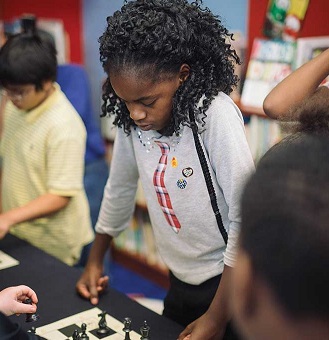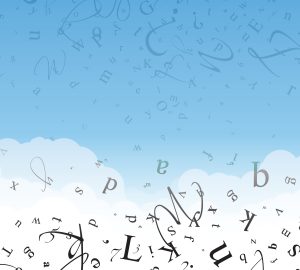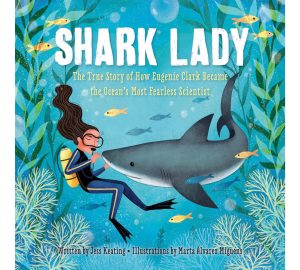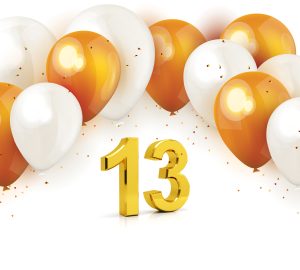It takes minutes to learn but a lifetime to master. This phrase commonly describes chess, a game rapidly gaining popularity in St. Louis area schools, thanks to the Chess Club and Scholastic Center of Saint Louis. The game’s benefits go well beyond the board, helping kids learn valuable life skills.
Tony Rich, executive director of the Chess Club, says it’s easy to disprove the notion that chess is only for ‘smart people.’ “There are six pieces on the board, so the basic rules are very simple and quick to learn,” he explains. Mastering strategies is another story, yet that is the goal of the club’s after-school programs, which now reach 2,500 students each semester in more than 100 classrooms, many of them inner city. One in particular, Your Move Chess, started last fall, is getting a lot of attention in its mission to bring chess to the Ferguson-Florissant School District.
It began with an innocent exchange between Nick Ragone, senior vice president and chief marketing and communications officer at Ascension healthcare, and his son. “My 11-year-old is on the competitive chess team at Community School,” Ragone says. “Last year, he asked me if every school in this area had a chess team, so I inquired at the Chess Club.” Ragone discovered many schools didn’t, and in fact, the superintendent in Ferguson-Florissant had just called the club asking how to start a program for his students. Ragone saw this as an opportunity to extend the reach of the game to more children, and especially to those who might not have any other way to access instruction in the game. Even before he could finish asking, his CEO at Ascension was on board to fund the program, and Your Move Chess was launched.
“We started last semester in just over 20 underserved schools in the district,” Ragone says. “We held a fundraiser at The Chase last month because we want to expand to 40 schools, and increase it to one or even two days a week. For every $1,000 we raise, we can add another school. And we want to provide the materials and support to make these programs competitive. Eventually, we hope to expand to other areas.” The event exceeded everyone’s expectations. “I’ve been thrilled at the way our community has responded,” Ragone says. He says chess reinforces positive life skills, particularly critical thinking, problem solving, patience, planning and decision making. “There’s a nice symmetry between skills needed to succeed at chess and at life,” he says.
That was exactly the rationale behind the Chess Club in the first place. It started over casual dinner conversation among enthusiasts, including local philanthropist Rex Sinquefield. “A group of us were talking about how it would be nice to have a local facility, and how it would be especially nice if we could get chess into inner city schools,” Sinquefield says. That idea has now grown into something well beyond what anyone could have imagined: an internationally recognized, 6,000-squarefoot, state-of-the-art chess facility at 4657 Maryland Ave. Rich says its three main focus areas—the club itself, scholastic outreach and major events—go hand in hand to popularize the game of chess and use it as an educational tool.
The facility is open seven days a week, and members can take advantage of free weekly classes, casual play areas, tournaments and lectures. It also hosts the top tournaments in the nation—the U.S. Chess Championship, U.S. Women’s Championship, U.S. Junior Closed Championship and, as of three years ago, the Sinquefield Cup, which involves the top 10 players in the world. “When these players come, they also go to area schools to talk about their experiences,” Rich says.
Its bread and butter though, according to Rich, is community outreach. A staff of about 35 certified scholastic chess instructors are trained at the club using a set curriculum, and they bring chess boards and demonstration boards into schools one or two times a week, on average, for an after-school program. “We have programs in schools like John Burroughs too, but we see our biggest impact in schools where students need the most help,” says Rich. “They might come from single-family homes or their moms work multiple jobs, or their schools lack extracurricular options.”
Both Rich and Sinquefield agree that chess is ideal for helping students learn how to tackle complex subjects. “From pre-K through college, chess is the only activity based solely on pure logic,” Sinquefield notes. “This year, the Chess Club started a longitudinal study that will follow students over many years to determine the effects of chess on academics and behavior, Rich says. “Many students say they look forward to coming to school more on the days they have chess and that it helps them believe they can handle more difficult problems.” Not a bad start.








